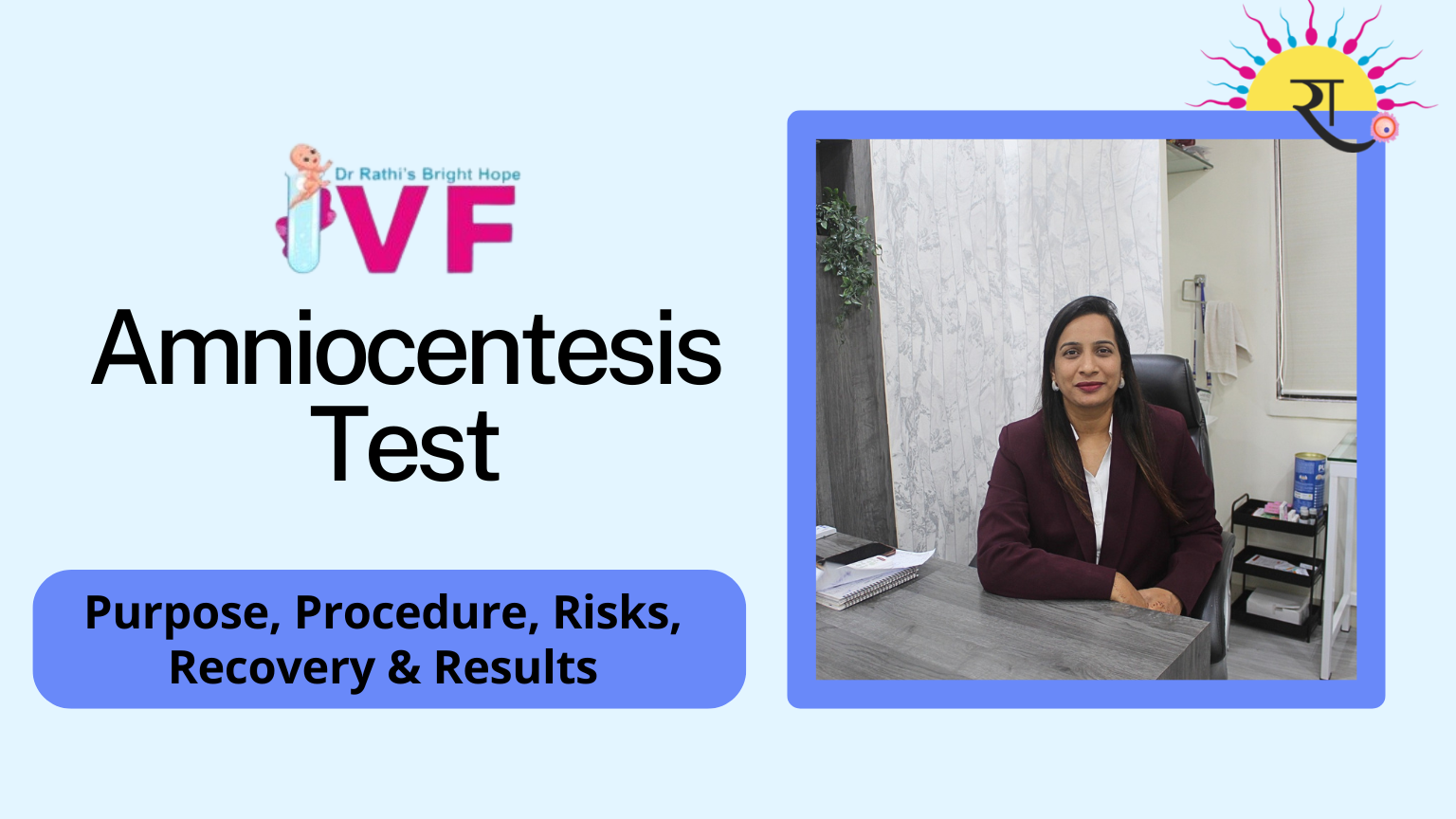Amniocentesis Test at Dr. Rathi's Bright Hope IVF: Everything You Should Know
Amniocentesis is one of the most accurate ways to diagnose a genetic problem in a foetus. This process has been quite reliable for many years, helping parents - to - be to acquire crucial information about their babies’ health.
What is Amniocentesis?
Amniocentesis is a form of fatal diagnostic technique in which a small amount of the amniotic fluid surrounding the foetus is withdrawn. This fluid holds fatal cells and a wide range of substances from which tests can be made to establish such things as Down syndrome and other diseases. The procedure is normally done between the fifteenth and twentieth weeks of pregnancy as this is the time when amniocentesis gives the most relevant results.
Is it painful?
An issue that pregnant couples ask often is, is amniocentesis painful? This is a technique that involves passing a thin needle through the abdomen to reach the uterus to collect the amniotic fluid. Despite the fact that the very word needle may seem frightening, most of the women note that the process as such is not painful but more uncomfortable. At each session, apart from the funny sensation or sensation of pressure during needle penetration, very mild discomfort in the form of cramping might be felt. The entire process is fast and at Dr. Rathi’s Bright Hope IVF, our professional staff does everything to make you comfortable.
Why it is better than NIPT?
One of the other tests for option for diagnose of genetic conditions includes the Non-Invasive Prenatal Testing or NIPT, yet it is crucial to differentiate it from the NIPD. NIPT is a screening test that can suggest the presence of particular genetic disorders in a foetus but does not allow it to determine the presence of the disease. While Amniocentesis is a diagnostic process. This means it can diagnose the genetic health conditions in a precise manner thus offering clearer diagnoses.
Does amniocentesis requires admission?
A major benefit of amniocentesis in particular is that is a procedure that can be done on an outpatient basis. This implies that you can take the treatment without being admitted at the hospital. The whole procedure is expected to last for about thirty minutes only and after some amount of monitoring, one can actually be discharged and go home. It is recommended that you should avoid any heavy activities for the rest of the day in order to recover but the majority of women can get back to their normal activities the next day.
Complications of Amniocentesis
Even though the amniocentesis procedure is considered safe there are always certain risks that people tend to worry about. Rare side effects are likely to be experienced and may include; pregnancy terminations, infections or harm to the foetus. The chance of a miscarriage is believed to be below 1% and our talented team at Dr. Rathi’s Bright Hope IVF Centre does everything in its power to avoid any potential risks. We make sure that we conduct the procedure in a clean environment and equally ensure that we handle you and your baby carefully.
Gestational age when amniocentesis is done
The right time for carrying out amniocentesis is very important. The process is best done in a period ranging from 15 to 20 weeks in the gestational age of the pregnancy. At this stage, the fluid in the amniotic sac is adequate to perform tests and the result is most likely to be accurate. If the test in done earlier or later, there are risks of increasing the chances of developing complications, or the accuracy of the results may be compromised, so the correct timing should always be followed.
Conclusion
Amniocentesis is proved to be helpful in prenatal care since parents can be assured about their baby’s condition after amniocentesis. Perhaps it is a little invasive compared to other tests such as the NIPT but it gives solid results that are very useful in decision-making. At Dr. Rathi’s Bright Hope IVF, we will help you at each step and provide you with all useful information and assistance.
